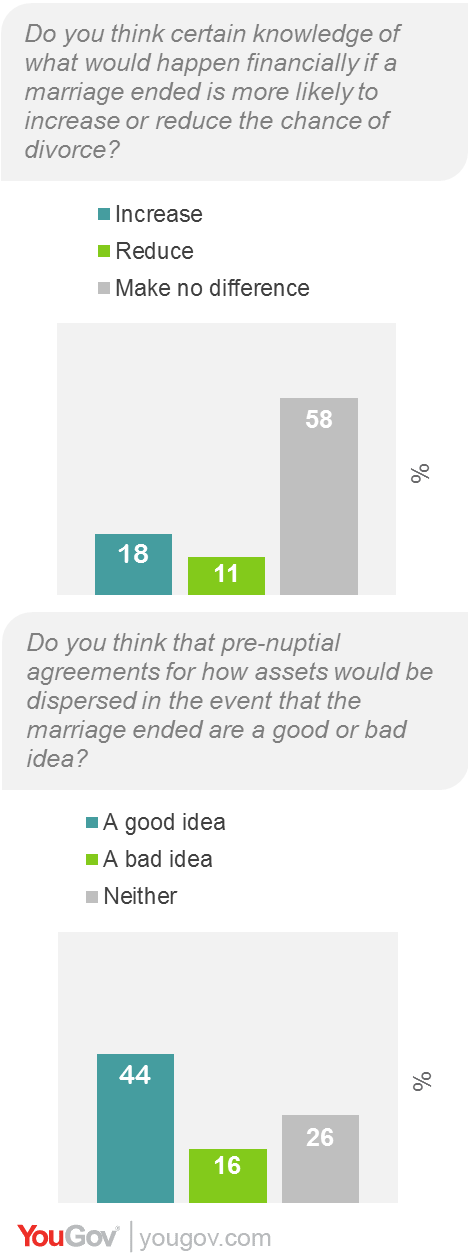Most people think that knowing what would happen financially if a marriage ends makes no difference to the likelihood of divorce
“One of the more robust findings in social science is that if you think about divorce you are more likely to do it. The prenup is key to set you on that path." Those were the words of Harry Benson from the Marriage Foundation on hearing that prenuptial agreements – contracts entered into prior to marriage to settle the division of assets in the event of divorce – may for the first time in Britain become legally binding.
New YouGov research shows that most in Britain disagree.
58% say that having certain knowledge of what would happen financially if a marriage ends makes no difference to the chance of divorce. 18% say it does increase the likelihood, while 11% say it reduces the likelihood.
Interestingly, although Britain lags behind countries like America where prenups have been legally binding for a long time, people from the two countries do not differ much in their views.
British people tend to think they are a good idea, by 44-16%. And so do Americans, though by a slightly bigger margin of 51-9%.
In America people are more receptive to prenups, however: if they were getting married for the first time 38% would get one while 40% would not; in Britain people split 29-52%. But then this may reflect knowledge that the prenup would actually be effective in America, unlike in Britain.
Those who worry that the introduction of legally binding prenups will increase the likelihood of divorce often cite the divorce reform act 1969, which ended the tradition of having to prove fault in the divorcee and drove divorce rates up. Prenups can save money in divorce settlements, however, and offer financial independence for both partners.






